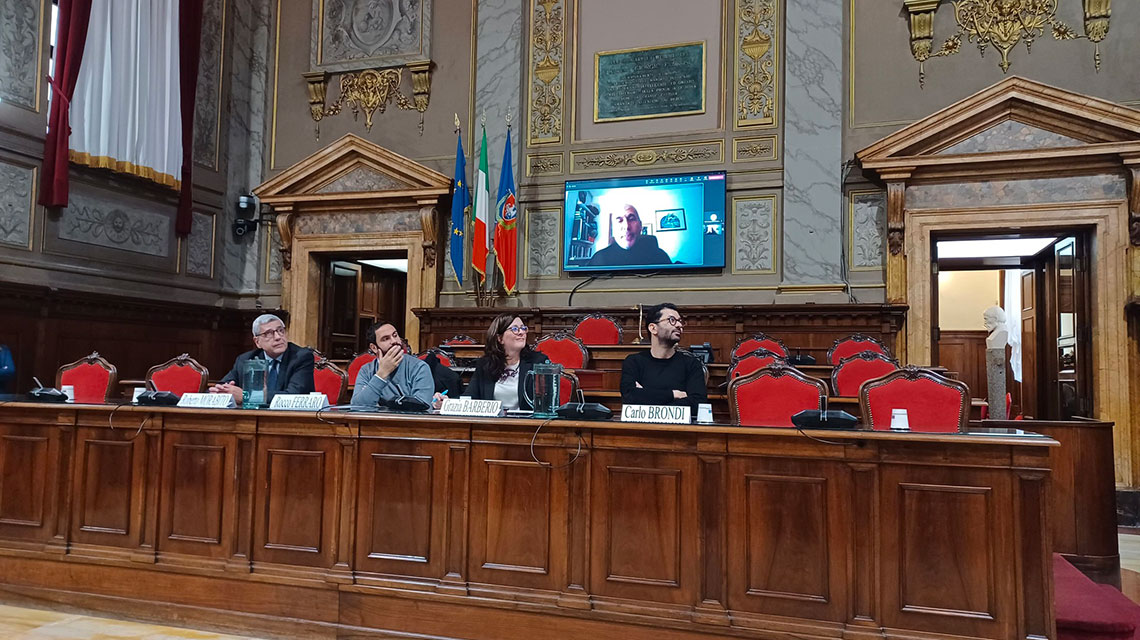Italian National Agency for New Technologies, Energy and Sustainable Economic Development

Environment: Good ecodesign practices from the ICESP platform promoted by ENEA
Promoting the transition to the circular economy through environmentally friendly design practices, starting with seven virtuous examples, was the central theme of the 7th conference of the Italian Circular Economy Platform ICESP promoted by ENEA, held at the headquarters of the Metropolitan City of Rome.
Launched in 2018 as the Italian hub of the analogous European initiative “European Circular Economy Stakeholder Platform” (ECESP), the ICESP platform brings together an ever-growing community of more than 900 experts from more than 300 organizations, including public institutions, businesses and trade associations, the research community and civil society.
“ENEA is devoted to research and development activities in the field of ecodesign, with a focus on sustainable materials development, design for recycling and product life extension,” said ENEA Director General Giorgio Graditi at the opening of the proceedings. “In addition,” he added, ”we foster national and international collaborations, participate in numerous European projects and support institutions in the definition of industrial policies. As promoter of the ICESP platform, we support the transition to the circular economy through research, development, innovation and dissemination of good practices.”
“As part of the path toward circular transition, the new EU Regulation on ecodesign can be considered a milestone with, for example, the establishment of ecodesign requirements products need in order to be placed on the market, like the extension of their useful life, the obligation to contain a minimum of recycled materials, reduction of environmental impact, circularity and climate neutrality, and the digital passport with consumer information available on the web to encourage more informed consumption choices,” ICESP President Roberto Morabito pointed out. “The adoption of this Regulation,” he added, ”is a particular source of satisfaction for ICESP, whose experts have not only produced studies presenting insights and reflections but also 5 proposals for policy makers contained in this document.
In the first session of the conference, coordinated by the ICESP Platform coordinator Grazia Barberio, researcher at the ENEA Sustainability Department, seven good ecodesign practices of the organizations CETMA, VINYLPLUS ITALIA, Radici InNova, Favini, Erion, Sisifo Società Benefit MATREC Srl, selected from the ICESP database, (which contains over 250 good circular economy practices, of which more than 60 pertaining to ecodesign) were presented.
The second session, coordinated by Economiacircolare.com editor-in-chief Raffaele Lupoli, hosted a roundtable discussion dedicated to ongoing public and private initiatives-with a focus on the recent European Ecodesign Regulation 2024/178 in which representatives from MIMIT and MASE ministries, ARTI/PUGLIA, the National Agrifood Cluster CL.A.N., CNA and the Customs and Monopolies Agency took part.
The technical reports were prepared by Serenella Sala of the JRC (Ecodesign in European policies to promote innovation and competitiveness) and Carlo Brondi of the CNR/UNI (Standardization in support of ecodesign and circular economy best practices).
“Ecodesign is an innovative approach to design that integrates environmental sustainability into every phase of a product's life cycle to reduce its environmental impact and promote the transition to a circular and sustainable economy,” Claudia Brunori, director of the ENEA Sustainability, Circularity and Climate Change Adaptation of Production and Territorial Systems Department, said at the closing of the proceedings. “This conference,” she added, ”wanted to stress the importance of ecodesign as a strategic lever for the transition to a circular economy, with the new European regulation representing an opportunity to accelerate this process. Our country, with many institutional initiatives already in place and as proved by the good practices of the ICESP platform, is at the forefront in this field and can play a leading role at the European level in implementing the regulation. ENEA plays a crucial role by promoting interdisciplinary approaches to support the transition to the circular economy.”
